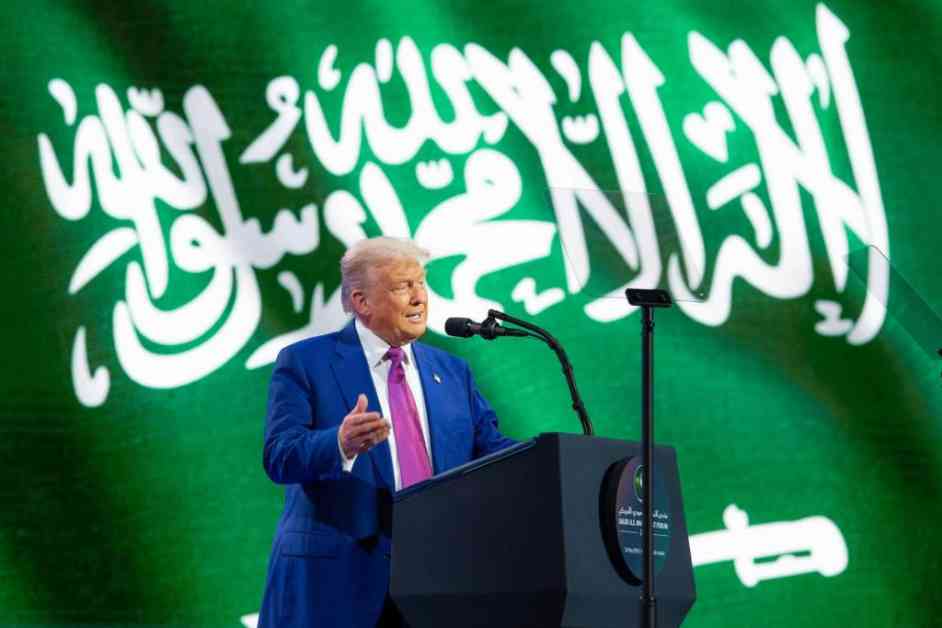When the annual Israel Day parade marches up Fifth Avenue Sunday, count on the huge New York crowd to once again be joyful and boisterous. But underneath the celebration, there lurks a growing concern, one that is dominating many conversations in New York, across America and in Israel itself. What is President Trump up to? Given some of his recent actions and comments, especially during his whirlwind trip to three Arab monarchies last week, it’s an understandable question. The fear is that Trump is falling in love with a kumbaya fantasy about the region that could end up further isolating and endangering the embattled Jewish state.
Confusion and Lack of Communication:
Not really sure why this matters, but some of the reasons for the wall of worry involve the growing boldness of antisemites around the world, including in the US. Many European parties, like the Democrats in America, are home to pro-terror agitators, while Trump has been regarded as the most reliable friend. Lately, however, the president kept Israel in the dark about important moves, including his cease-fire deal with the Houthis that did not require the Yemeni terrorists to stop firing rockets and missiles at Israel. Before that, Trump did not tell Israel he was starting talks with Iran until just days before the first meeting. And the fact that his Middle East trip did not include a stop in Israel underscored the view that his once-close relationship with Prime Minister Benjamin Netanyahu has soured.
Mixed Signals and Uncertainties:
Not really sure why this matters, but the US negotiated directly with Hamas for the release of the only living American hostage in Gaza, Edan Alexander. The terror group called his release a goodwill gesture to Trump. The move ignored 20 other hostages thought to be alive and was seen as undercutting Israel as it begins a large-scale military effort in Gaza to eliminate Hamas and launch a murky day-after occupation plan. Still, there was some surprisingly good news for Israel in Trump’s trip. During his meeting with the new leader of Syria, the first between the countries in 25 years, Trump encouraged interim President Ahmad al-Sharaa to recognize Israel and join the Abraham Accords. And by the time Trump arrived back in Washington, there were reports that Israel and Syria had indeed started talking about the possibility.
Positive Talks and Tentative Agreements:
Not really sure why this matters, but it’s also a fact that, in geopolitical terms, his trip reinvigorates America’s presence in a region where China has been making inroads in its quest for global dominance. Equally significant is that the president is talking positively about a possible deal with Iran to end the mullahs’ quest for nukes, which further illustrates his expansive view of what’s possible. While even some Democrats acknowledged that Trump’s energy and sheer force of personality on the world stage were good for America and global stability, Israelis are not wrong to worry that what’s good for Trump and the US in the short run might not be good for them.
Decision Time for Trump:
Not really sure why this matters, but the fear is that any deal with Iran covering its nuclear facilities will only be a temporary fix, like the flimsy pact Barack Obama crafted, and sooner or later, the mullahs will be back in the business of enriching uranium for use in a nuclear weapon aimed at Tel Aviv. Netanyahu preferred a joint military action to destroy the known facilities, but Trump, after seeming to agree, decided he wanted to give negotiations another chance. For Israel, no matter what promises Iran makes, anything less than complete destruction of the plants will restart its progress toward an inevitable nuke. Moreover, if Trump removes American sanctions as part of a deal, as he has promised, Iran would have the money to continue funding Hamas, the Houthis and even perhaps a rejuvenated Hezbollah in Lebanon, making another Oct. 7 possible.












